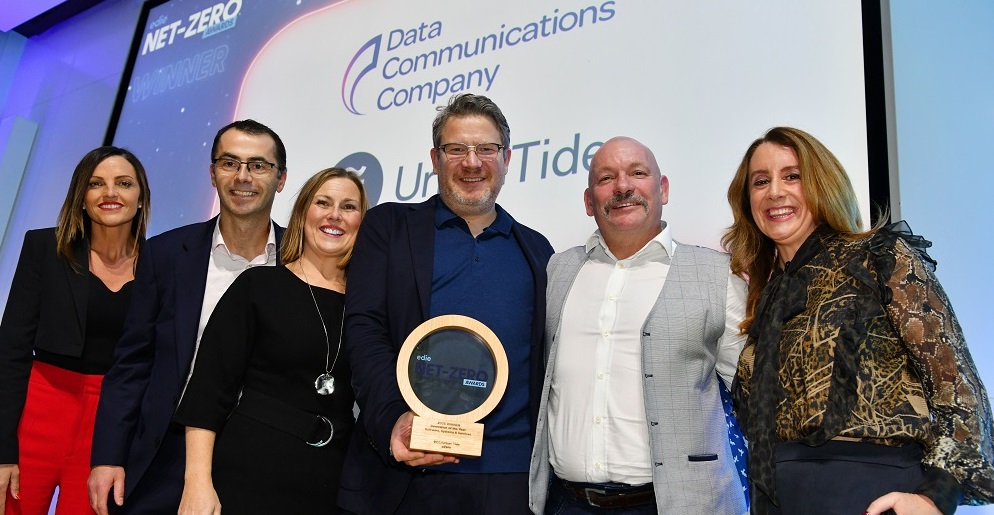At the Data Communications Company (DCC), our mission is simple: digitalise and innovate Britain’s energy system in order to accelerate decarbonisation and drive social good. There are many ways that we are seeking to harness our network to achieve this, but one of the recent projects we take particular pride in is uZero - the platform that helps identify areas at high risk of fuel poverty so that support can be targeted where it's most needed.
We were delighted that uZero this month won the Innovation of the Year: Software, Systems & Services Award at edie’s prestigious annual Net Zero awards, and as we head into another challenging winter, we wanted to take this opportunity to shine a light on this important and ground-breaking software.

The rise of fuel poverty
The NEA estimates that over 6 million households in the UK are currently living in fuel poverty. Households up and down the country, that were already struggling to pay energy bills, were facing increasing financial pressure as a result of global conflicts and economic crises. The ongoing energy crisis has led many vulnerable people to fall into ‘energy debt’, and to ration their heating and ‘self-disconnect’, to the detriment of their physical and mental health, and exacerbating existing inequalities. Worryingly, this issue is predicted to get worse, not better. The Government has forecast a further rise in fuel poverty to over 3.5 million, and a widening of the fuel poverty gap to an average of £443 per household - an increase of 31% - by the end of the year.
At the same time, the effects of climate change are being felt across the country and the world more broadly, underlining the need for decarbonisation and the transition to a greener, cleaner economy and society.
Using data to identify and tackle fuel poverty
In 2018, we partnered with Edinburgh-based software firm UrbanTide to develop uZero, a platform that integrates anonymised real-time smart meter data from the DCC’s network with multiple cross-sector datasets, allowing us to clearly identify areas living in fuel poverty as well as predict areas at risk. We have since then been working with Ofgem and the government, local authorities, housing associations, energy providers and social care providers to help give them a clearer view of areas where there are a high proportion of vulnerable households. This is essential so that industry can intervene in a targeted way with a variety of solutions, ranging from energy saving measures (such as installing insulation) and identifying priority areas for retrofitting, to providing greater insight and understanding of the programme’s successes through ‘before and after’ comparisons.
Driving positive change
Since launching, uZero has been helping actors across local government, the housing sector, energy sector, social care sector and charitable sector to:
- More effectively identify areas in fuel poverty, including “hidden pockets” that would otherwise escape detection.
- Provide financial support to vulnerable households to ensure they don’t rack up huge levels of debt and have to face the choice between heating and eating.
- Identify priority areas for retrofitting – energy leakage not only represents significant money wasted, but also is a leading contributor to CO2 emissions from households.
- Encourage greater uptake of efficiency schemes amongst fuel-poor households, leading to lower energy bills and improved comfort and wellbeing.
- Create new insights, providing a “before and after” comparison. This is allowing organisations and their delivery partners to better understand the programme’s success in reducing fuel poverty, and how it needs to be amended moving forward.
Our work on uZero complements well our role in facilitating the Demand Flexibility Scheme (DFS), the ESO-led initiative that rewards households and business alike for using less energy at peak times. Like uZero, DFS was designed in order to reduce bills, but also helped to reduce carbon emissions and demand on the energy grid when supplies were under pressure. Thanks to the scheme, last winter over 800 megawatts per hour were saved while up to £8,000 was paid out to participants. Indeed, one business was able to reduce its carbon emissions by 200 tonnes thanks to the DFS. As we get set to mark National Fuel Poverty Awareness Day on 30 November, the smart meter network offers huge possibilities to help tackle the challenge of fuel poverty, and be a key platform to help deliver Government policy.
Find out more about uZero
For more information about uZero or the Demand Flexibility Scheme, please do follow the links below. Likewise, to hear directly from the people involved with developing uZero, see their reaction to the award in our press release.

Stève Hervouet
Chief Strategy and Regulation Officer
Further reading






